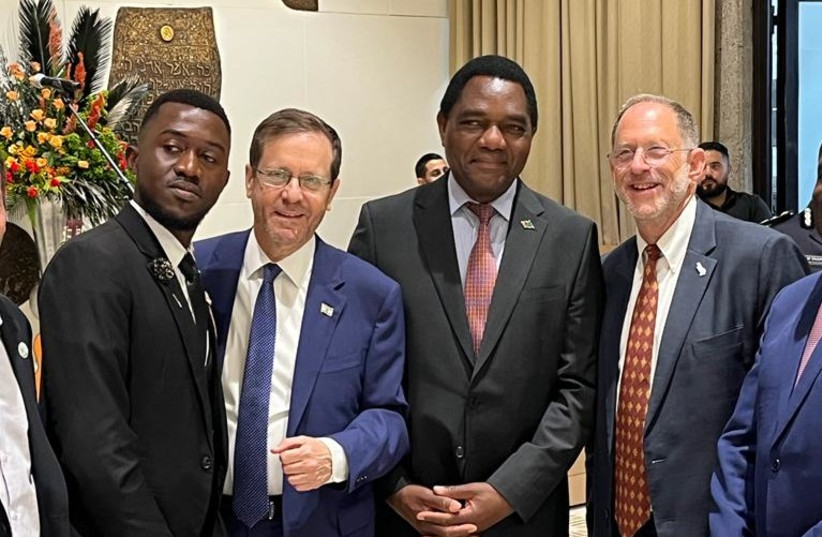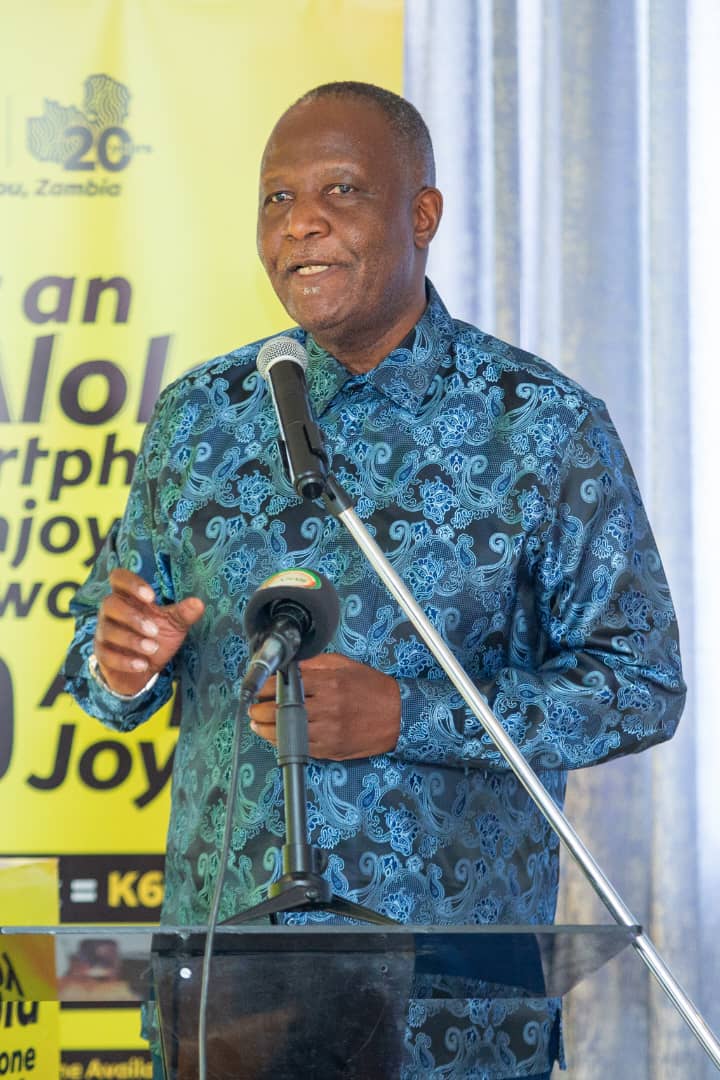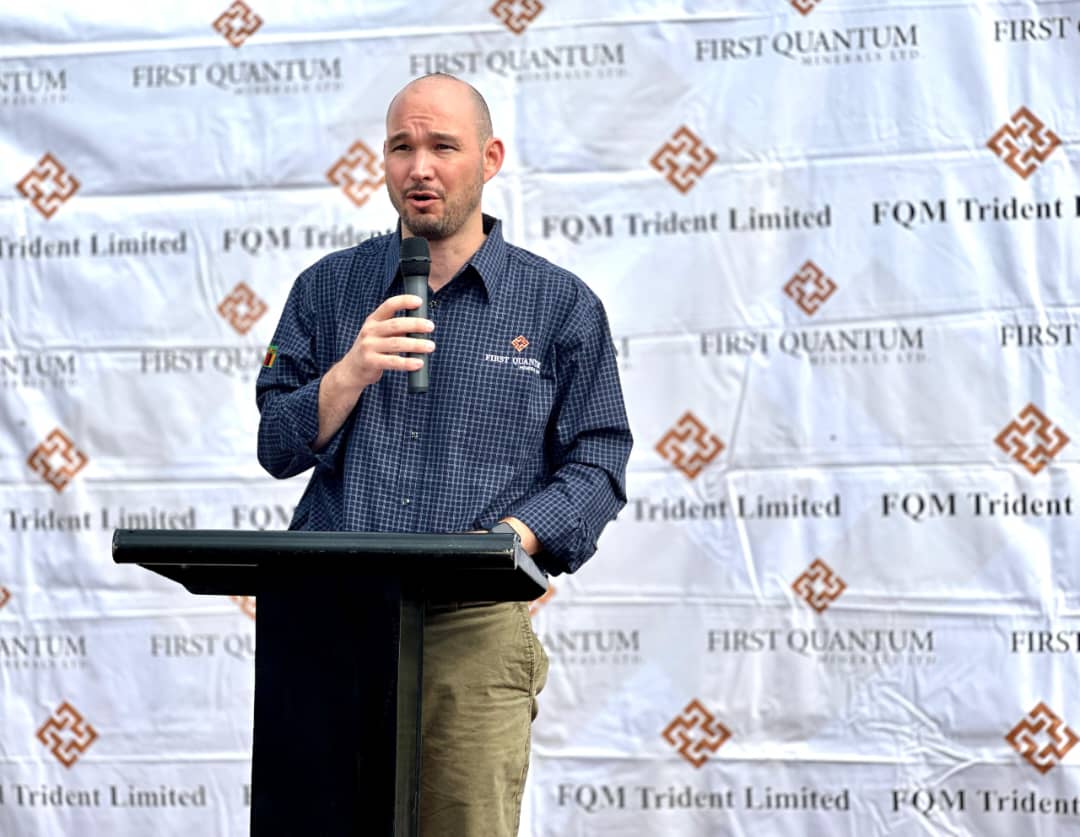(JPost)-The USD$100 million investment in the power station was finalised last week during the visit of Zambian President Hakainde Hichilema to Israel.
A significant renewable energy project is underway in Zambia to establish a power station capable of generating 71 megawatts of electricity, which is a joint effort between Israel’s Gigawatt Global and Gigawatt Wind. The unique aspect of this project is that it aims to harness both solar and wind energy, with each contributing half of the total power output.
The journey towards this milestone has been extended, spanning seven years of negotiations and efforts by the involved companies. However, progress was finally accelerated with the president’s visit, whose approval last week provided the crucial green light the companies had eagerly awaited.
The companies now have an Investment License with Zambia Development Agency and an Implementation Agreement with the Energy Ministry.
The president gave Zambia’s power utility company an executive order last week to provide the final signature.
Gigawatt Global and Gigawatt Wind have already completed grid impact studies. Gigawatt Global president Yosef Abramowitz told The Jerusalem Post that the company will move on-site to start full project implementation. The station is being built in Chibombo, a district in the Central Province of Zambia, about two hours from the nation’s capital.
The breakthrough deal was achieved following meetings between Hichilema, President Isaac Herzog, Foreign Minister Eli Cohen, and Abramowitz.
Abramowitz is a long-standing, prominent figure in Israel’s renewable energy sector. He is the co-founder of the Arava Power Company and former chairman of Eilat-Eilot. Gigawatt Wind is co-directed by American-Israeli businessman Ilan Goldstein, one of Israel’s first wind energy investors.
The facility will be the first in Sub-Sahara Africa to combine wind and solar energy in one location, providing a continuous supply of renewable energy 24/7.
“We had been stuck for two or three years because the country was just not moving the last permissions and contacts forward,” Abramowitz said. “When we were told about the president’s trip, we hoped it represented the opportunity for a breakthrough.
“Zambia gets a $100 million pioneering power plant, jobs, training and the prestige of being the first African country with a hybrid wind and solar station; Israel benefits from bilateral relations,” he said.
“This will be the most significant private Israeli investment in the Zambian economy.”
Abramowitz said Gigawatt plans to do similar work in other African countries, some of which do not have diplomatic relations with Israel.
The combined plant solves a crucial challenge of solar energy storage, which today mostly relies on high-cost batteries that cause environmental damage. In Chibombo, the wind picks up as the sun sets, enabling 24/7 power.
Hichilema was in the country to encourage Israelis to consider investing in Zambia.
During Zambian Foreign Minister Stanley Kasongo Kakubo’s meeting with Cohen, they signed a framework agreement to strengthen cooperation in medicine, communication, agriculture, and culture.
“Africa is growing, and there is great potential for Israel’s relations with the continent’s countries,” Cohen said last week.
The Foreign Minister has undertaken a series of visits to Africa in the past few weeks, and four economic forums were held between Israel and African countries, including two in Israel. Globes reported that more than 50 Israeli companies established connections with various African entities during these economic forums.
Gigawatt Global built the first grid-connected solar project in East Africa, an 8.5-megawatt solar power plant in Rwanda. Earlier this year, it cut the ribbon on a similarly sized solar power project in Burundi.
The Zambian utility company will sign a 25-year power purchase agreement with Gigawatt Global and Gigawatt Wind to ensure the new project’s viability, Abramowitz said.








